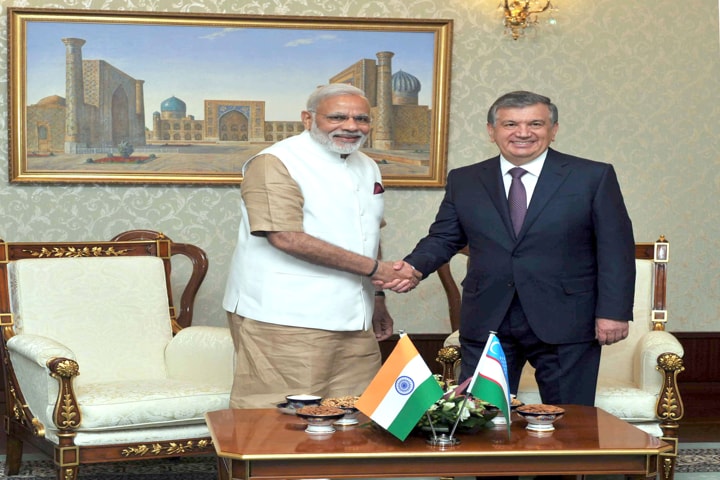India and landlocked Uzbekistan are set to reboot ties, taking advantage of Iran’s likely accommodation in the international mainstream and the rapidly approaching political transition in Afghanistan.
Three major factors are likely to shape New Delhi’s relationship with Uzbekistan—a resource rich nation with a deep historical connect with India. Separated by only 3000 kilometres, India sees Uzbekistan as a gateway to Central Asia. The country can also become a cockpit of the rivalry between India and China, with Russia as the elephant in the room.
Second, the two countries have a shared interest in counterterrorism, with Afghanistan, which may soon become the hub of radicalism as the core concern. These anxieties have been fuelled by US President Joe Biden’s decision to pull out of Afghanistan by September, leaving a power vacuum which Pakistan backed Taliban may fill.
Also read: Uzbekistan, India moving swiftly to partner on Chabahar
“This will impact geopolitics in that region and the issue of Afghanistan could now feature in the India-Uzbekistan bilateral dialogues. The developments in the region after the withdrawal of US troops will be carefully watched. This has also enhanced inter-dependence between India and Uzbekistan,” Narendra Taneja, energy expert, told India Narrative.
Third, the likely re-accommodation of Iran in the global mainstream during the Biden presidency will provide an important node of connectivity, cementing a strong commercial relationship between New Delhi and Tashkent.
Already India, Iran and Uzbekistan have held their first ministerial meeting to leverage the location of Chabahar port. India and Uzbekistan under the 2011 Ashgabat Agreement also plan to build a transit and transport corridor between Central Asia and the Persian Gulf.
In building ties with Uzbekistan, India is mindful of China’s growing influence in Central Asia.
“China looks at Central Asia as its backyard and it is important for India to keep this in mind..this essentially means that there will be multiple challenges. We need to be ready with a proper strategy, show support to the regime, intensify connectivity and set up local but strategic pads within the region,” Subhomoy Bhattacharjee, Senior Adjunct Fellow dealing with the energy sector at the New Delhi based think tank RIS (Research and Information System for Developing Countries) said.
With its ambitious Belt and Road Initiative (BRI) in focus, China, by 2013 had already become the largest investor in Central Asia, overtaking Russia.
“Chinese investment has mainly been in infrastructure and extractive industries, which has brought an array of negative environmental impacts and social tensions to the region,” the Third Pole, an independent information and research platform, said. It added that experts and environmentalists in Central Asia have already raised grave concerns over the potential ecological and social impacts of the BRI and the lack of adequate assessments in the developing region.
Taneja pointed out that India enjoys a high level of trust with Central Asian countries especially Uzbekistan. Analysts point out that with the Russians feeling edged out in their own backyard, India and Russia are poised to work together to collectively ward off growing Chinese influence in the region.




















